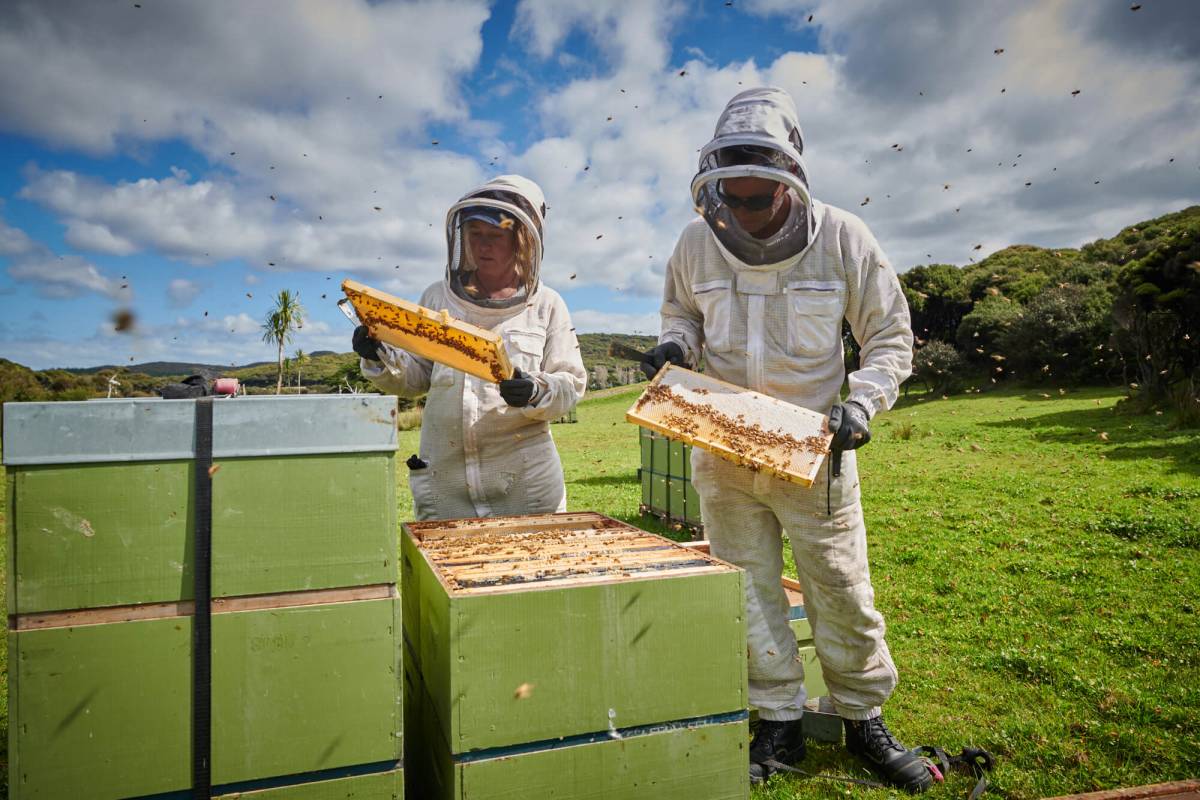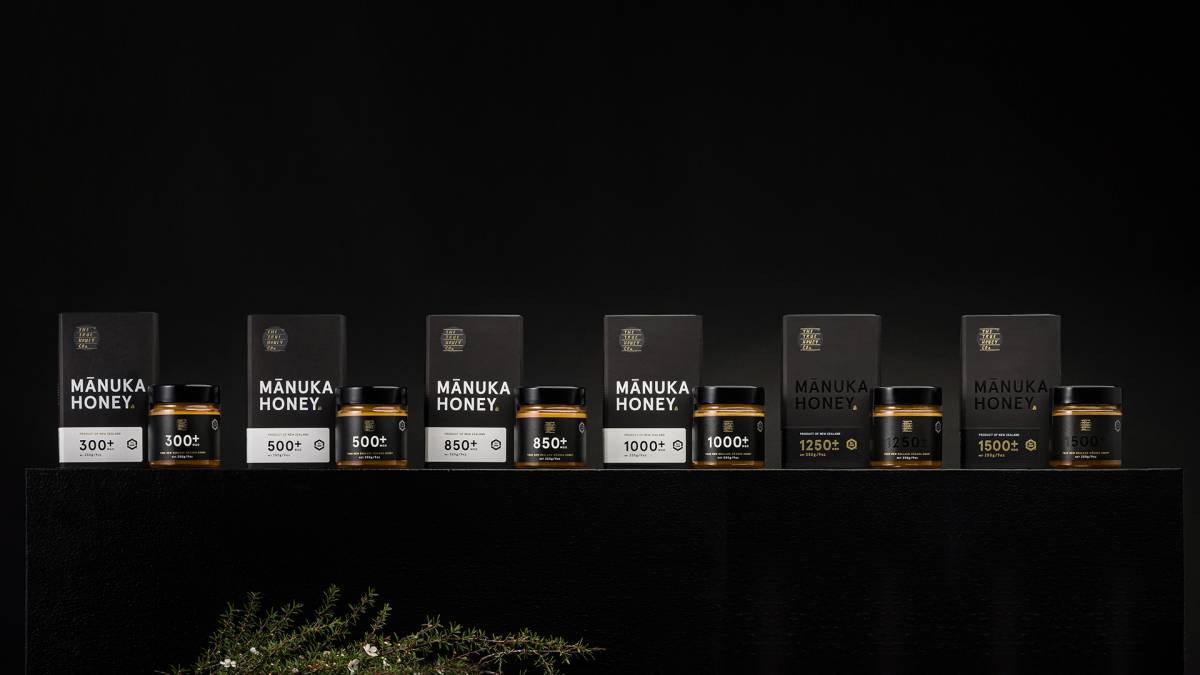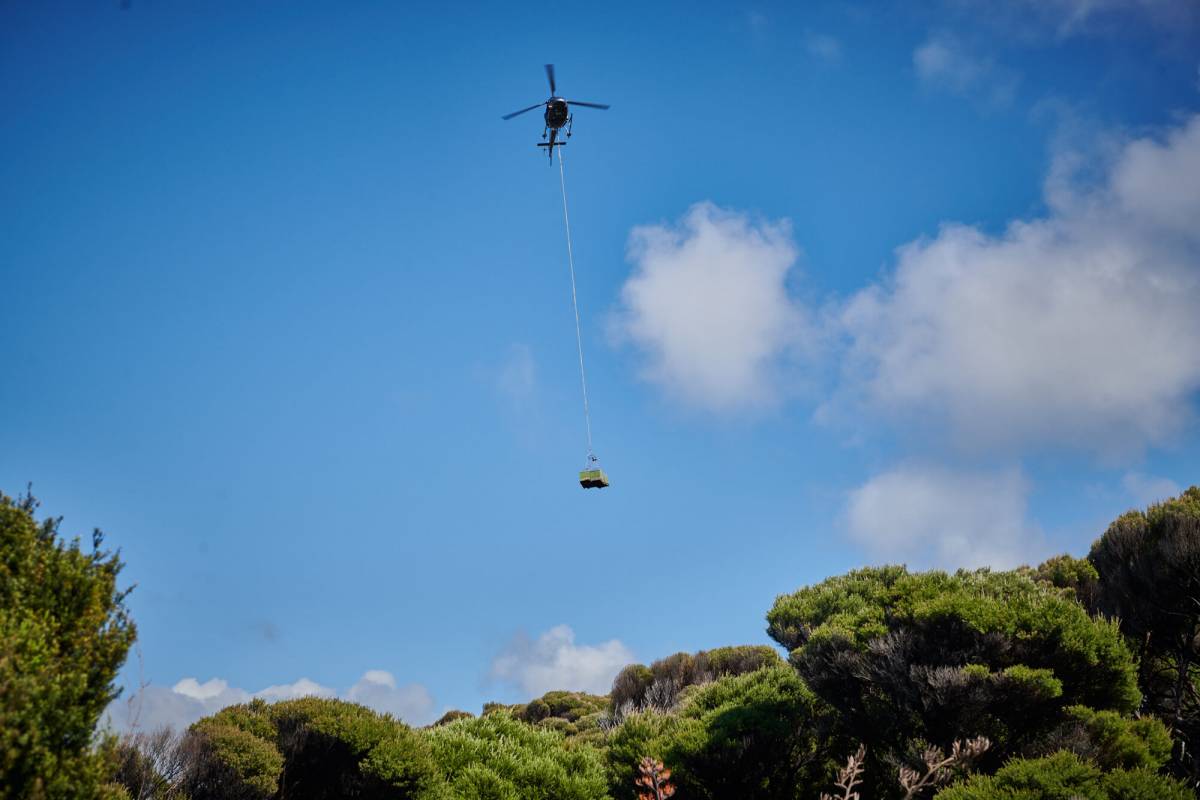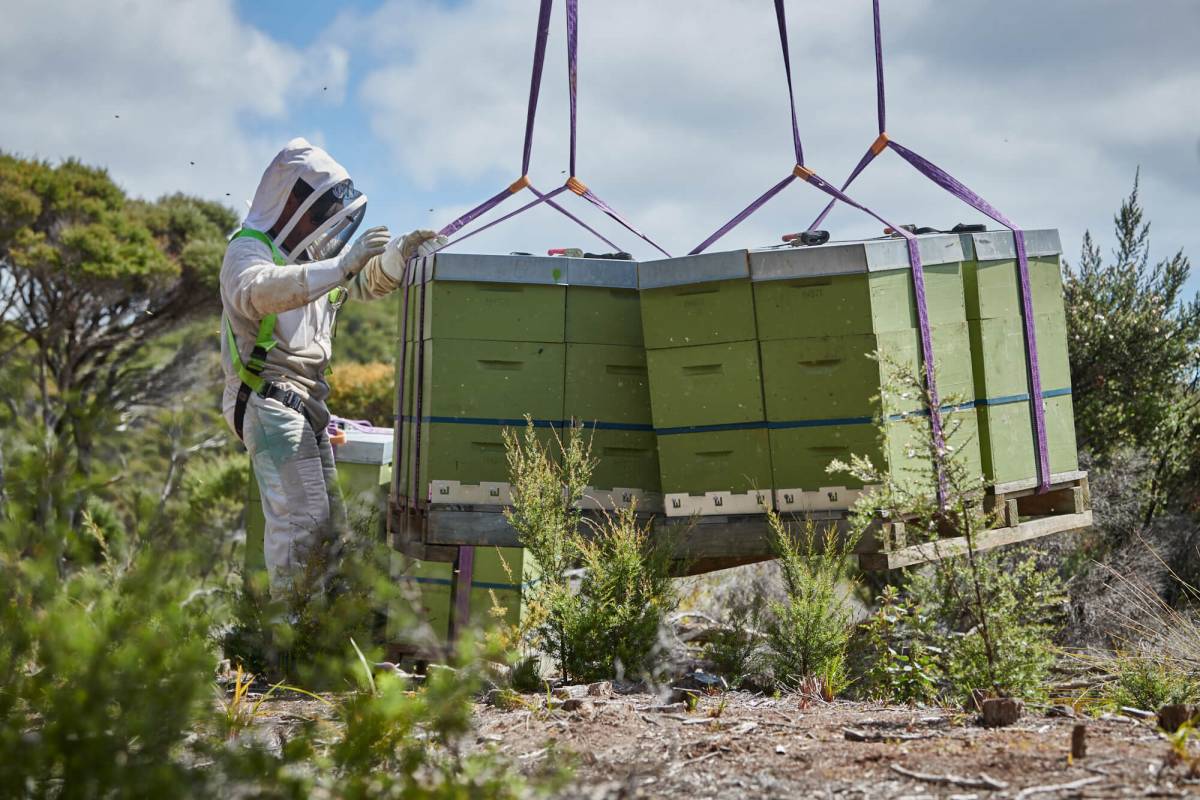
Mānuka honey is a gift from nature, according to Jim McMillan, founder of New Zealand’s The True Honey Co.
He would know. The pilot-turned-entrepreneur has spent the last decade flying into the remotest wilds of New Zealand to cultivate beehives in stands of mānuka flower.
McMillan and his team airlift hives into inaccessible areas far from human habitations, allow the bees to feast on the mānuka in the plant’s nectar and return for harvesting.
The resulting product is a rich yellow unguent, which flows like molten gold and is sold at a price to match. As the brand behind the highest-grade honey mānuka in history, The True Honey Co.’s pots retail for up to $1,625 per unit.
With a presence in the Middle East, Europe and Australia, the small but nimble company is now turning to China’s health-hungry $6 trillion consumer market.
“Chinese people for generations have had a strong affiliation for natural products and how they can play a beneficial role in our wellbeing,” McMillan told Alizila in an interview from Beijing during the entrepreneur’s first trip to China.
Wellness brands down under, from vitamin giant Blackmoors to family-run cleaning product brand Koala Eco, have direct access to pure natural ingredients like manuka, making them particularly attractive to Chinese shoppers.
“New Zealand and Australian products are known and trusted by our customers in China to be of high quality and efficacy,” Pier Smulders, General Manager of Alibaba Group, Australia and New Zealand, told Alizila.
Striking Gold
For two weeks, McMillan traded the rolling hills and ocean stretches of Hawke’s Bay – a small town on New Zealand’s North Island where The True Honey Co. is based – for the concrete jungles of the company’s latest market.
The True Honey Co. launched a store on cross-border e-commerce platform Tmall Global in late October, coinciding with the kick-off of the world’s largest retail event, the 11.11 shopping festival, also known as Singles’ Day or Double 11.
This one small enterprise is not alone.
Taobao and Tmall Group said 2023’s 11.11 recorded the most participation from new brands, new merchants, and small and medium-sized merchants. At the start of the campaign, it noted that 46,000 brand merchants worldwide would bring overseas products to Chinese consumers.

The True Honey Co. straddles the luxury and wellness categories as an up-market health supplement boutique and is well positioned to ride China’s robust health food sector, which grew by 3% to reach RMB394 billion ($54 billion) last year, according to data from the Hong Kong Trade Development Council.
“We want to set a new standard of wellness in general and we want to change the way the world values and consumes mānuka honey,” True Honey’s Chief of Marketing Jane Willersdorf told Alizila over the phone from Hawke’s Bay.
This means an omnichannel strategy, including tie-ups with up-market British department stores Harrods and Selfridges, and Australian luxury retailer David Jones, for whom True Honey produced a special line of 1836+MGO mānuka honey to celebrate the store’s 185-year anniversary.
“We’ve found that partnering with high-end retailers has been an effective way of building our brand profile and awareness,” said McMillan.
A Natural Fit
Chinese health-conscious shoppers need no introduction to the advantages of honey, making the market a perfect pairing for The True Honey Co.
As the world’s largest producer of honey, Chinese consumers are already well acquainted with its nutritional value and around 74.5% buy honey for its wellness benefits, according to a recent study conducted by researchers at Jiangxi Agricultural University.
Mānuka honey – made from the nectar of the flowering shrub native to New Zealand and Australia – delivers a triple shot of wellness that you won’t find to such a level in other honey varieties.
Its antioxidant, antimicrobial and regenerative properties are recognized by the medical community and can be effective through ingestion and topical application.
A mānuka honey product’s potency is measured by its Unique Manuka Factor (UMF), an industry-wide grading system that rates the amount of three naturally occurring chemical compounds, including antibacterial compound methylglyoxal (MGO).


This is where The True Honey Co. shines.
Most mānuka honey on the market is around 5 UMF, according to a report by consultancy Allied Market Research. The True Honey Co.’s Rare Harvest 2050+ MGO line has a UMF of 34. In addition to 200 jars of this prized product, the company has introduced six more lines on its Tmall Global store ranging from 300+ MGO to 1250+ MGO.
“Wellness is a huge category and there is significant competition, but we pride ourselves on fusing science with nature to create premium wellness products that deliver results to enhance the everyday wellbeing of our customers,” said Willersdorf.
This focus on quality and purity led The True Honey Co. to claim a 70% market share for the premium mānuka honey segment in the GCC last year, McMillan explained.
It will also help the brand attract new fans among Chinese consumers, 28% of whom say honey grade is the most important consideration when purchasing mānuka honey, a survey by the New Zealand Trade and Enterprise agency last year found.

Sustainable Entrepreneurship
The True Honey Co. is leveraging partnerships at the local and international level to deliver its products to consumers from Shanghai to Saudi Arabia.
This wouldn’t be possible without the strong ties the company has cultivated among local landowners, many of whom are Maori, the indigenous people of Aotearoa New Zealand.
“It’s been a great partnership because a lot of the land they own wasn’t being utilized so they weren’t able to generate income or benefit from those areas,” said McMillan.
The strength of this cooperation lies in transparency and mutually beneficial partnerships.
Landowners are able to use the brand’s proprietary online software program called TrueView to follow all elements of the honey production process as it happens, the founder explained.
“We also use it to refine exactly when we should place and remove the hives,” said McMillan.
And as The True Honey Co. moves more into the Chinese market, this will ensure a steady stream of this gift from nature for its wellness-hungry clients.




